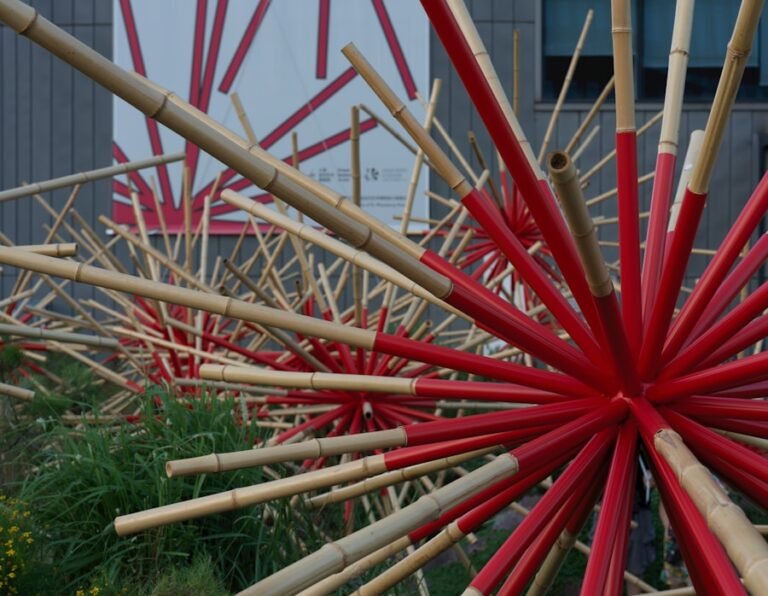When embarking on a construction project in Bali, it is crucial to have a deep understanding of the cultural and legal considerations that come into play. Bali is known for its rich cultural heritage and traditions, and it is important to respect and adhere to these customs throughout the construction process. This includes understanding the significance of certain symbols, colors, and designs in Balinese culture, and ensuring that these are incorporated into the project in a respectful and appropriate manner.
In addition to cultural considerations, it is also important to be well-versed in the legal requirements and regulations that govern construction in Bali. This includes obtaining the necessary permits and approvals from local authorities, as well as adhering to building codes and zoning laws. Working with a local legal expert who is familiar with the intricacies of Balinese law can be invaluable in navigating these complexities and ensuring that the project is in compliance with all relevant regulations.
Finding Reliable and Skilled Contractors
Finding reliable and skilled contractors is essential for the success of any construction project, and this is especially true in Bali where the construction industry may operate differently than in other parts of the world. It is important to conduct thorough research and due diligence when selecting contractors, and to seek out recommendations from trusted sources. Working with contractors who have a proven track record of delivering high-quality work and who are familiar with the local construction practices can help to mitigate potential risks and ensure that the project is completed to a high standard.
In addition to technical skills, it is also important to consider factors such as communication and cultural compatibility when selecting contractors in Bali. Building strong relationships with local contractors and ensuring clear lines of communication can help to prevent misunderstandings and ensure that the project progresses smoothly. Taking the time to find the right team of contractors can make a significant difference in the overall success of the project.
Dealing with Infrastructure and Supply Chain Challenges
Infrastructure and supply chain challenges can present significant obstacles when undertaking a construction project in Bali. The island’s remote location and unique geography can make it difficult to access certain materials and resources, and it is important to plan for these challenges in advance. This may involve sourcing materials locally or finding alternative solutions for transportation and logistics.
In addition to physical infrastructure challenges, it is also important to consider factors such as access to utilities and services. Ensuring that the necessary infrastructure is in place to support the construction project, such as electricity, water, and waste management, is essential for its success. Working closely with local authorities and service providers can help to address these challenges and ensure that the project has the necessary support systems in place.
Navigating the Permit and Approval Process
Navigating the permit and approval process is a critical aspect of any construction project in Bali. Obtaining the necessary permits and approvals from local authorities can be a complex and time-consuming process, and it is important to be well-prepared and proactive in addressing these requirements. This may involve working closely with a local legal expert who can guide you through the process and ensure that all necessary documentation is in order.
In addition to obtaining permits, it is also important to consider factors such as environmental impact assessments and community consultations. Balinese culture places a strong emphasis on harmony with nature and community, and it is important to demonstrate a commitment to these values throughout the permit and approval process. Engaging with local stakeholders and seeking their input can help to build positive relationships and ensure that the project is aligned with the needs and values of the community.
Managing Budget and Cost Overruns
Managing budget and cost overruns is a common challenge in construction projects, and this is no different in Bali. It is important to carefully plan and budget for all aspects of the project, including materials, labor, permits, and unforeseen expenses. Working with experienced financial advisors and project managers can help to develop a realistic budget and identify potential areas of risk.
In addition to proactive budget planning, it is also important to have contingency plans in place for potential cost overruns. This may involve setting aside a reserve fund or identifying alternative sources of financing to address unexpected expenses. Regular monitoring and reporting on project expenses can help to identify potential issues early on and take corrective action before they escalate.
Incorporating Sustainable and Eco-friendly Practices
Incorporating sustainable and eco-friendly practices into construction projects in Bali is not only a legal requirement but also an ethical responsibility. The island’s natural beauty and delicate ecosystem make it particularly vulnerable to environmental degradation, and it is important for construction projects to minimize their impact on the environment. This may involve using locally-sourced materials, implementing energy-efficient design principles, and minimizing waste generation throughout the construction process.
In addition to environmental considerations, it is also important to consider social sustainability factors such as labor practices and community engagement. Ensuring fair wages and safe working conditions for laborers, as well as engaging with local communities in a respectful and inclusive manner, can help to build positive relationships and leave a lasting positive impact on the community.
Maintaining Respect for Balinese Traditions and Aesthetics
Maintaining respect for Balinese traditions and aesthetics is an essential consideration when undertaking a construction project in Bali. The island’s rich cultural heritage and artistic traditions are deeply intertwined with its built environment, and it is important to ensure that new construction projects are in harmony with these traditions. This may involve incorporating traditional design elements, using locally-sourced materials, or seeking input from local artisans and craftsmen.
In addition to aesthetic considerations, it is also important to consider factors such as spiritual significance and symbolism in Balinese culture. Certain symbols, colors, and designs hold deep cultural meaning in Bali, and it is important to be mindful of these when designing and constructing new buildings. Engaging with local cultural experts and seeking their input can help to ensure that the project respects and honors Balinese traditions.
In conclusion, undertaking a construction project in Bali requires careful consideration of cultural, legal, logistical, and environmental factors. By understanding these considerations and taking proactive steps to address them, it is possible to navigate the complexities of construction in Bali while respecting its rich cultural heritage and natural beauty. With careful planning, collaboration with local stakeholders, and a commitment to sustainability, construction projects in Bali can contribute positively to the island’s development while preserving its unique identity.












